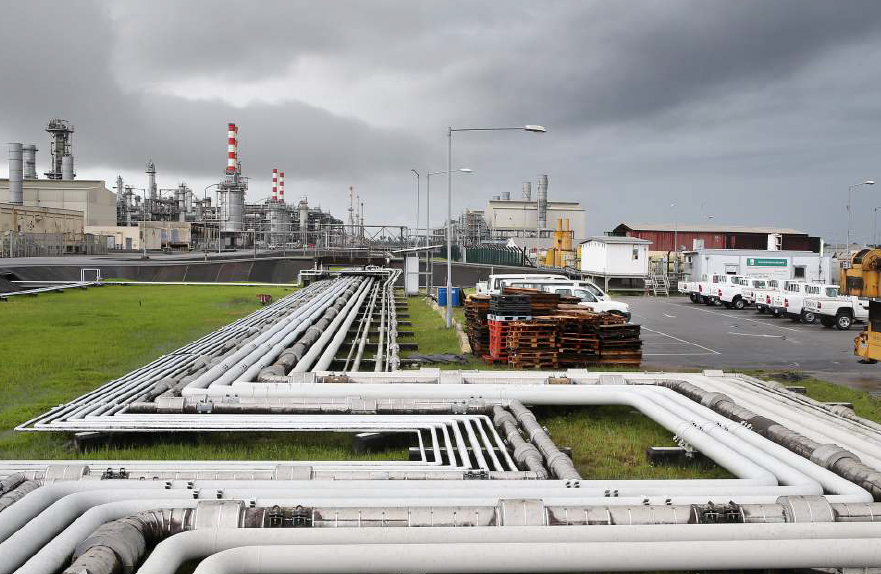A new report by the International Institute for Sustainable Development (IISD) says expanding the production of liquified natural gas (LNG) could put Nigeria in a “precarious economic situation”.
The report added that this could prolong the country’s dependence on fossil fuels and leave it with “stranded assets” as international demand for gas falls.
The report titled ‘A Balancing Act: Considerations for the expansion of liquified natural gas projects in Nigeria’ was released on Thursday.
It warned of a high likelihood that any scale-up of LNG production could leave Nigeria with “unprofitable assets”, as well as reduced financing for clean energy sources.
Advertisement
The report said Nigerian LNG exports may struggle to compete in the global market after 2030, adding that replacing oil revenues with LNG may not generate the expected income.
It said LNG expansion should not come at the expense of addressing inequality, energy access, and socio-economic challenges.
The report concluded that Nigeria must “realistically manage” its gas ambitions, align with transition plans, and prioritise community development in gas projects.
Advertisement
“Facing declining oil revenues, economic turmoil following the COVID-19 pandemic, and European demand for LNG, Nigeria has moved to address its revenue shortfall by significantly scaling up LNG production,” the report stated.
“Oil revenues have long underpinned the Nigerian Treasury, accounting for about two-thirds of government earnings and 90% of its foreign exchange income.
“However, as production has fallen due to lower levels of investment and regional unrest, there is renewed focus on LNG, which provides considerably smaller, albeit growing, revenues.
“In 2023, LNG revenues reached N74 billion, accounting for around 7% of total government revenues. As of 2022, Nigeria was already the sixth-largest LNG exporter worldwide, with a 6% market share.
Advertisement
“As oil contributes less to revenues, the government plans to build on its existing LNG developments, with ministers declaring 2021 to 2030 the decade of gas.
“Currently, Nigeria has six operational LNG terminals; nine more are proposed, with LNG construction investment totalling N28.3 trillion.
“But to replace Nigeria’s falling oil revenues, LNG exports would still have to increase by an order of magnitude. Such a scenario would require sustained international demand and high prices for LNG.”
Bathandwa Vazi, co-author and IISD policy advisor, said Nigeria’s LNG expansion is a short-term thinking that could end up costing the country dearly.
Advertisement
“Economic diversification away from fossil fuels is critical in building a sustainable future for the country, not locking in further dependence on polluting commodities,” Vazi said.
“Nigeria is already up against bigger players in the LNG market, and new LNG developments take 8 to 10 years to produce gas.
Advertisement
“As international demand for gas peaks, Nigeria must recognise that a fossil fuel-based economy cannot carry it far into the future.”
‘GAS AS TRANSITION IS CRITICAL TO NIGERIA’S NET-ZERO GOAL’
Advertisement
Sam Onuigbo, former member of the house of representatives, said using gas as a transition fuel is critical to Nigeria’s net zero transition efforts.
Onuigbo said the transition will reduce the country’s greenhouse gas emissions and provide short-term revenue for a gradual and just phase-out of dependence on fossil fuels.
Advertisement
“But we must be smart about this, and keep a finger on the pulse of international movements towards net zero transitions and the impact on potential gas revenue,” he said.
“It is important to have a proper plan which takes into account the global net zero scenario, the possibility of being left with stranded assets, and ensure that we limit investments into LNG and have a fixed date for moving away from it completely.”
However, Nnimmo Bassey, executive director of Health of Mother Earth Foundation (HOMEF), said increasing LNG production will delay the transition from fossil fuels.
“While increasing LNG production may boost Nigeria’s revenues in the short term, it will only serve to position the country to end up with stranded assets, damaged communities and continued dependence on oil and gas exports,” he said.
“Nigeria’s drive for expanded LNG investment is happening at a time when several African countries are being pushed in the same direction basically to meet temporarily inflated European demand.”






